Get ready to talk about grilled squid, a squid stuffed with homemade ginger sweet miso. This dish is loved by everyone, young and old. We’ll explore all about it – health info, history, how they make it and why it tastes so good!
What is Grilled squid?
Introduction of Grilled squid
Grilled squid (or いかの鉄砲焼き, Ika no Teppo-yaki) is a seafood dish loved for its softness and tasty flavors. It’s basically fresh squid cooked over a fire or grill. People usually clean and cut the squid before cooking it to make it tender. Some, like Heiwa Shoten’s “Ika no Teppoyaki,” stuff the squid with homemade ginger sweet miso, making it even more delicious with a hint of sweet ginger.
When it’s time to cook, the squid hits the heat fast. This quick cooking keeps it soft inside while getting a nice, smoky char on the outside. The smell of the sea mixes with the grill’s flavor, making it smell amazing!
People love grilled squid because it’s simple yet tasty. You can find it everywhere, from casual street food spots to fancy restaurants. Its chewy texture and yummy grilled taste make it a hit for folks of all ages. Grilled squid is all about the mix of flavors and its easy, delicious feel. Whether it’s on its own or with other foods, it always brings that tasty seafood experience folks enjoy.
Which type of squid used in grilled squid?
Surumeika is the common type of squid that is usually used in grilled squid. Let’s find out more information about it and see how it affects Japanese cuisine.
Introduction & Characteristics
Surumeika, also known as the Japanese flying squid or Todarodes pacificus, holds a prime spot in Japan’s seafood culture. It’s the go-to squid for many when imagining this sea creature. The squid’s distinctive features include a reddish-brown band-like pattern along the coat membrane’s center and triangular, short fins against the torso. Surumeika belongs to the Kaiganome group and stands out as an open-eye subspecies compared to its closed-eye counterparts like yariika and blue squid. Found in the northwest Pacific Ocean, including the Sea of Japan, it lives for about a year and spawns in various locations from the East China Sea to the Sea of Japan.
Ecology & Catch Concerns
The squid’s lifecycle begins as larvae in the southern parts of the Sea of Japan and the East China Sea, gradually growing and traveling northward to Hokkaido and the Kuril Islands. Matured Surumeika then returns to the southern sea. Despite being widely caught in Japan, there’s been a significant decrease in its catch in recent years, raising concerns about its future. Various factors contribute to this decline, including environmental changes affecting juvenile squid survival, fluctuating seawater temperatures in the Sea of Japan (its spawning ground), and the impact of foreign fishing vessels.
Local Names & Culinary Preferences
Known by different local names like Maika, Matsuika, and Tonkyu, young Surumeika remains a sought-after catch, especially during early summer, earning a reputation for its soft and delicious meat. When it comes to taste and texture, fresh Surumeika has a slightly yellowish hue, offering a crunchy texture and a subtly addictive sweetness. However, due to the potential presence of parasites like Anisakis, it’s commonly processed before consumption. Often, it’s dried or salted overnight and heated to ensure safety. When properly handled, frozen Surumeika offers a unique sticky sweetness different from its raw form.
Freezing Technology & Safety Measures
The innovation of boat freezing technology has transformed how Surumeika reaches the table. This rapid freezing process, freezing squid at minus 30 to 40 degrees, maintains the freshness of freshly caught fish, eliminating concerns about Anisakis disease even for sashimi consumption. This freezing method comes in block freezing and tail freezing variants, with the latter first developed in Ogi Port, Noto City, Ishikawa Prefecture, in the mid-1970s. Tail freezing technology ensures each tail is frozen separately, preserving the squid’s quality and safety for consumption.
History
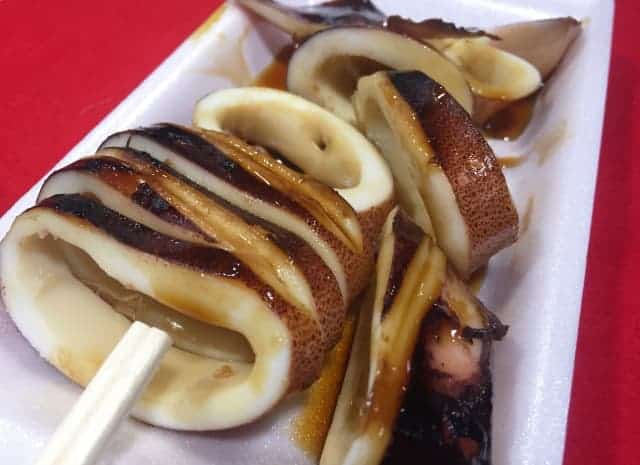
The history of “Teppoyaki” is quite intriguing. It’s said to have roots in various forms, from chili and Japanese pepper miso on fish, chicken, and bamboo to the preparation involving painting miso on fish. The name “gun” seems connected to its spicy nature, with associations to chili peppers and mustard. Historical references suggest that “Teppoyaki” might have borrowed its name from the method of burning bamboo shoots.
Moreover, regional dishes such as “gun burning of squid” in Aomori and “gun-kame” in Chiba share similarities in name and appearance, resembling a gun barrel or a bullet. The term “gun” extends to various contexts, from baths with metal cylinders to pufferfish dishes like “gun juice” and “tecchiri.”
The term’s usage dates back to the early Edo period, where it was employed to startle or surprise individuals, as seen in literature from that era. These connections paint an intricate history behind the term “gun” in various culinary and non-culinary contexts, offering a fascinating glimpse into its multifaceted origins and applications throughout history.
Nutritional fact of squid
Squid packs a punch with high-quality protein and low fat content. While it holds the highest cholesterol among seafood, it’s rich in taurine, which actually helps lower cholesterol levels in the body. Taurine comes with a host of benefits, like boosting heart and liver functions, maintaining vision, aiding insulin release, curbing high blood pressure, and reducing triglycerides.
Loaded with lysine, an essential amino acid, squid isn’t just about focus; it’s crucial for growth and fortifying liver functions. It’s also a boon for immunity, promoting hair growth, and revving up energy metabolism by producing antibodies that fend off bacteria and viruses.
Vitamin E found in squid is an antioxidant that guards against heart disease, strokes, and supports blood circulation. It’s hailed for its anti-aging properties and can help ease menopausal symptoms caused by hormonal imbalances.
With its low energy, low-fat, high-protein profile, squid is a champion for those watching their weight. Its chewy texture slows down eating, making it a smart choice for anyone aiming to manage their diet.
Grilled Squid Q&A
- Where can I find grilled squid in Japan?
Grilled squid is enjoyed throughout Japan, but some regions are particularly known for their unique preparations. Coastal areas like Hokkaido, Tohoku, and areas along the Sea of Japan are famous for their grilled squid dishes due to the abundance of fresh seafood. For example, in places like Hokkaido and along the Shimokita Peninsula in Aomori Prefecture, you’ll find local variations of grilled squid that highlight the region’s distinct flavors and cooking styles.
- Can you find grilled squid variations beyond the typical ginger sweet miso stuffing?
Yes, absolutely! Grilled squid comes in various flavors and preparations worldwide. Beyond ginger sweet miso, variations may include different marinades, spice blends, or fillings like garlic butter, teriyaki sauce, or chili-infused mixtures, offering diverse taste experiences.
How to make Grilled Squid?
Ingredients
| Ingredients of Grilled squid (4-5 servings) | Amount |
| Japanese Flying Squids (Himeika) | 4 |
| Green onions | 3-4 |
| Ginger | 20g |
| Salad oil | 1/2 tbsp |
| Sake (Japanese rice wine) | 4 tbsp |
| Miso | 2 tbsp |
Instructions
In a pot, add sake, miso, green onions, ginger, and squid feet. Stir-fry over low heat for 3 to 4 minutes.
Pack the prepared mixture into the squid body and secure it with a skewer.
Grill the stuffed squid on a fish grill until both sides are browned, for about 5 minutes.
Once grilled, cut the squid into round slices as desired and serve hot.
Recommended grilled squid products
Heiwa Shoten
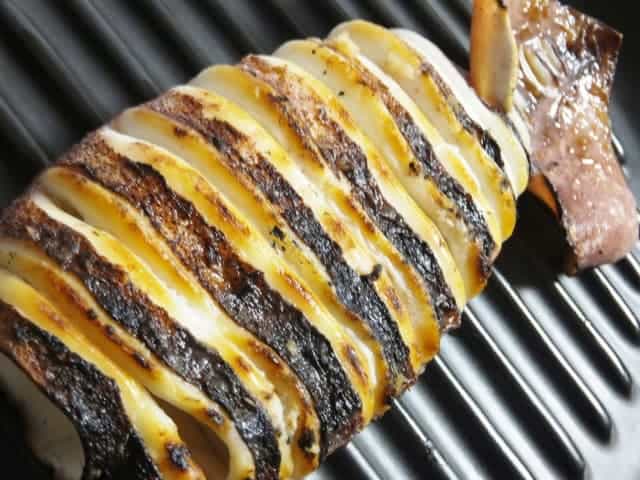
At Heiwa Shoten, they’ve crafted something special called Squid’s Gun Burning. It’s all about stuffing squid with their special ginger sweet miso. When they grill it, the squid gets all puffy, and the miso melts out, making everything taste amazing! People of all ages love this dish because it’s delicious and makes for a really enjoyable meal.
Product information
| Product classification | Food |
|---|---|
| JAN code | 4560481530022 |
| Contents | 2 tails |
| Desired main unit price (excluding tax) | 900 yen |
| Quantity per case | 40 packs (80 tails) |
| Minimum case delivery unit | 1 case |
| Case size (cm) Vertical, horizontal, high | 37.0×55.0×24.0 |
| Case weight (kg) | 13 |
| Expiration date/Expiration date | 180 days |
| Storage temperature range | Frozen |
| Order lead time | 3 days |
| Limitations of the sales area | 無 |
| Main raw materials | Sumeika |
| Main raw material production area | Ogi Port, Ishikawa |
| Whether or not PL insurance is enrolled | 有 |
| Lineup of the same product | 2 small squid gun-grilled |
Mikawayaseika

Introducing Mikawayaseika’s delicious grilled squid! It’s squid cooked until crispy and full of squid flavor. The sauce is made with soy sauce, adding extra tastiness. Once you try it, you’ll love its addictive flavor that makes you want more. It’s perfect for enjoying with drinks or as a snack!
| Product information | |
| Contents | 42g |
|---|---|
| Shelf life | 120 days |
| JAN code | 4902733143336 |
Takeaway
In conclusion, Ikateppo Yaki is just amazing! It’s crunchy outside and super tender inside, giving a delicious taste every time you take a bite. Whether you munch on it solo or with a drink, this grilled squid from Mikawayaseika is a real winner that’ll leave you wanting more!
If you are a fan of Japanese seafood, check out below!
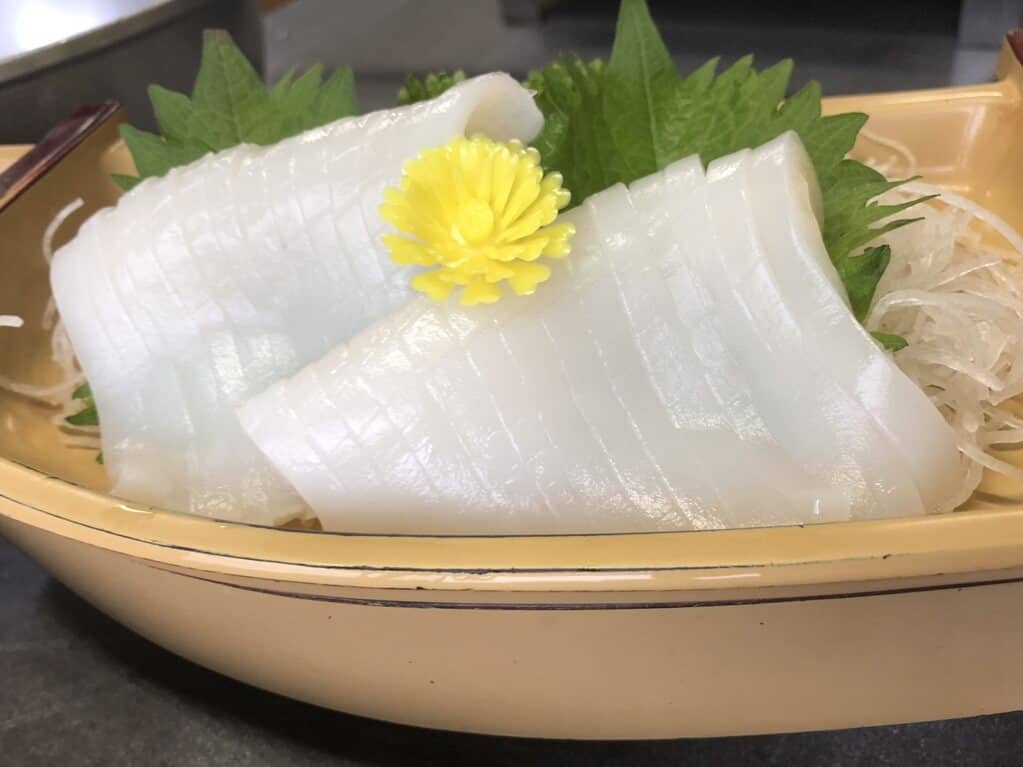
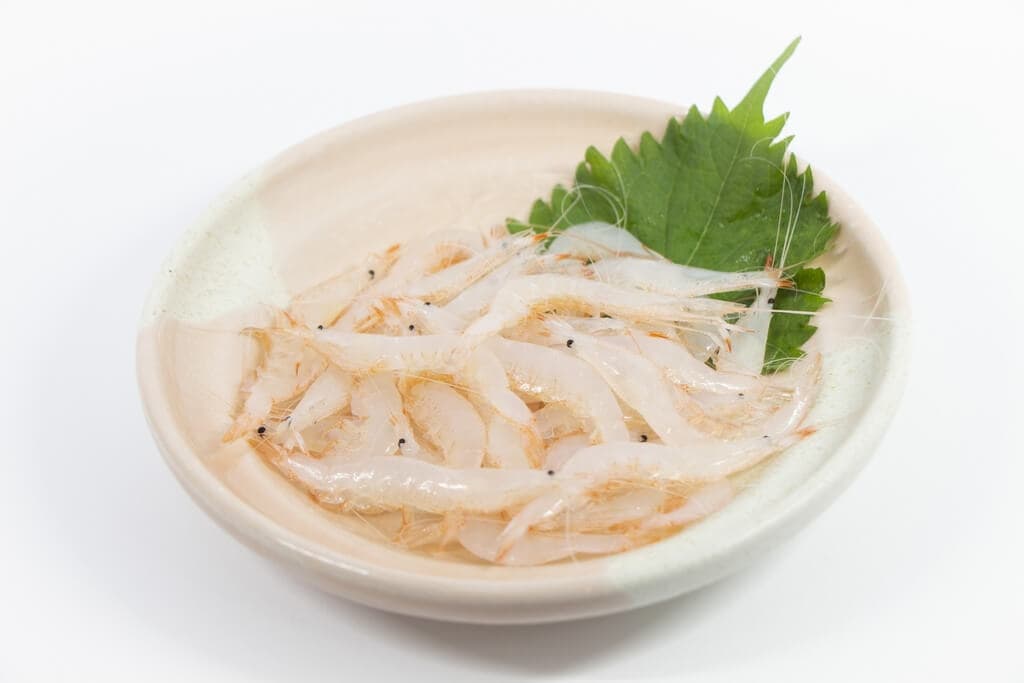
 牧野悦子-1-1256x832-1.jpg)
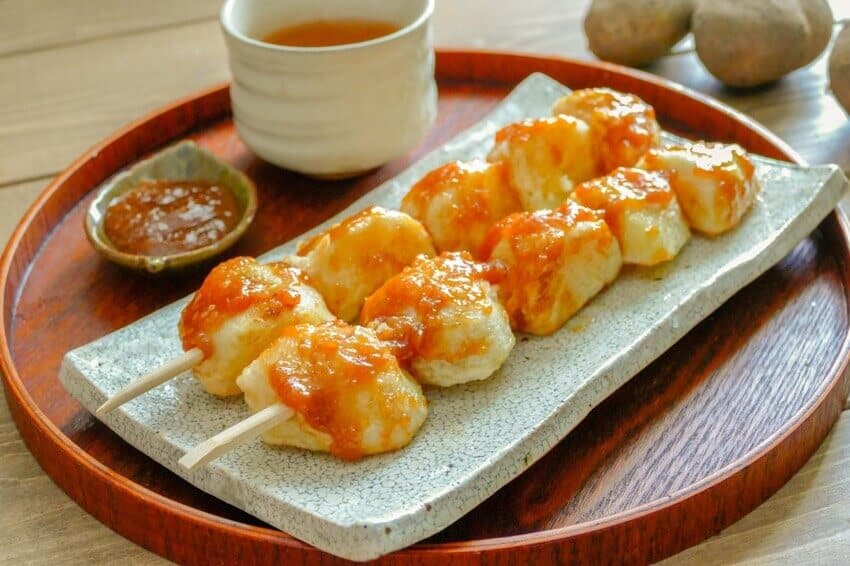
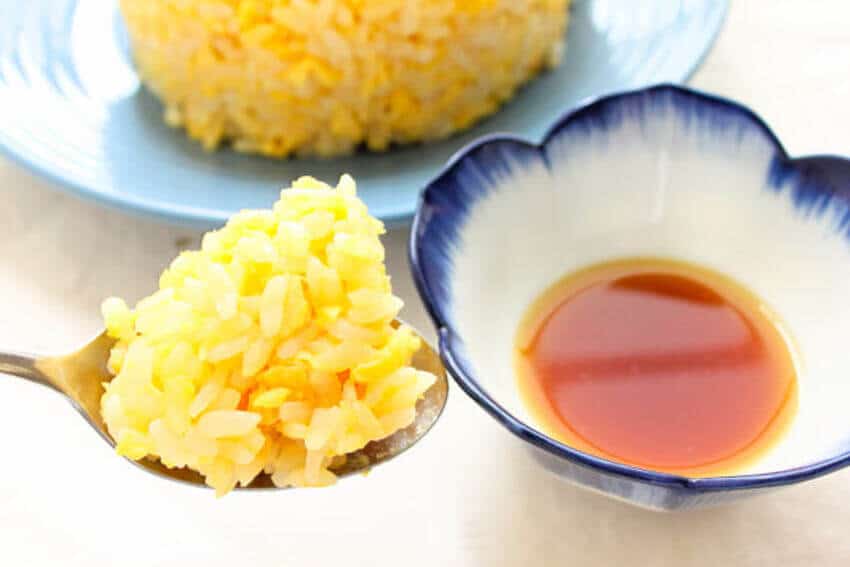
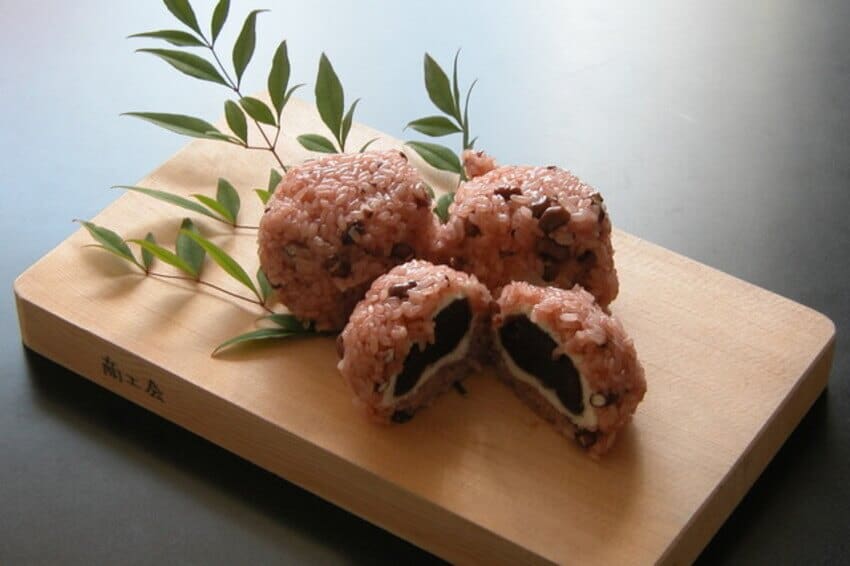
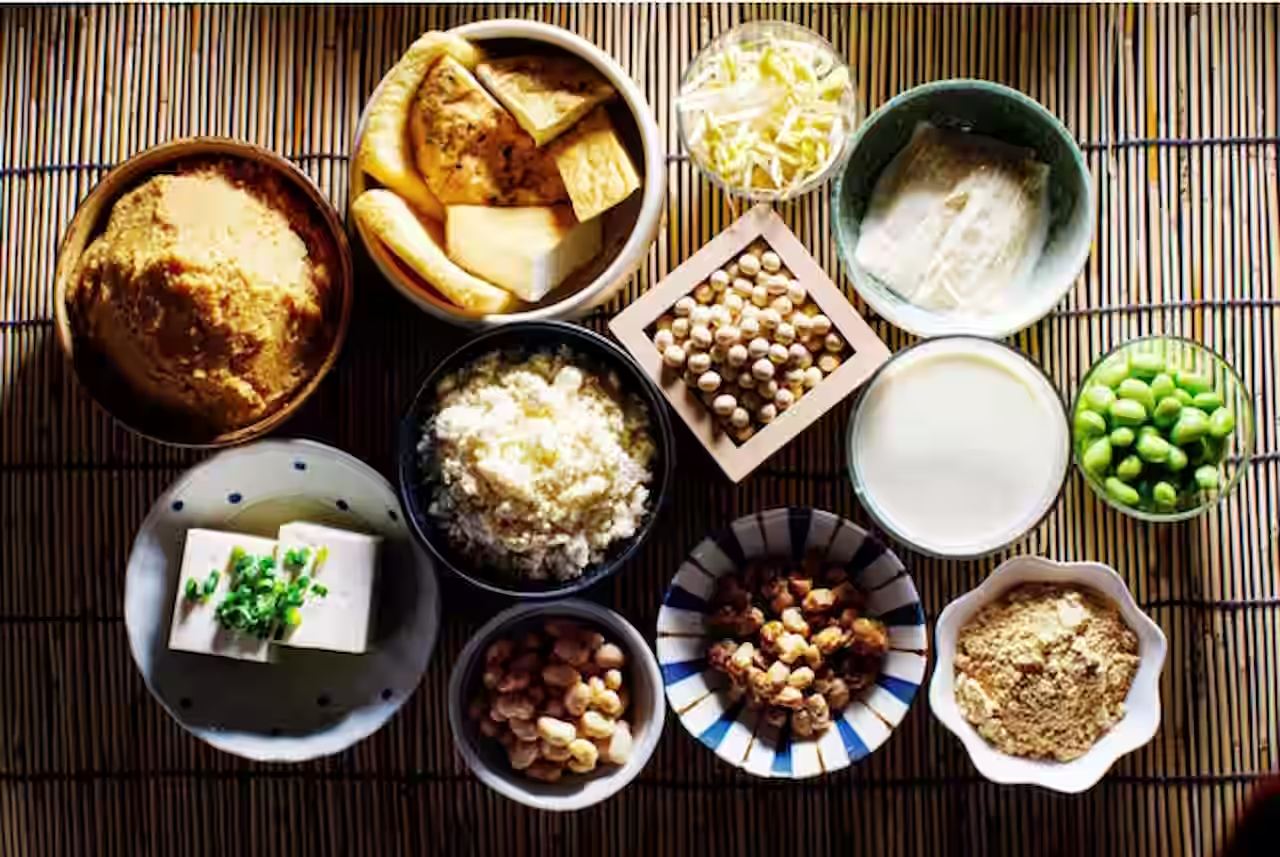

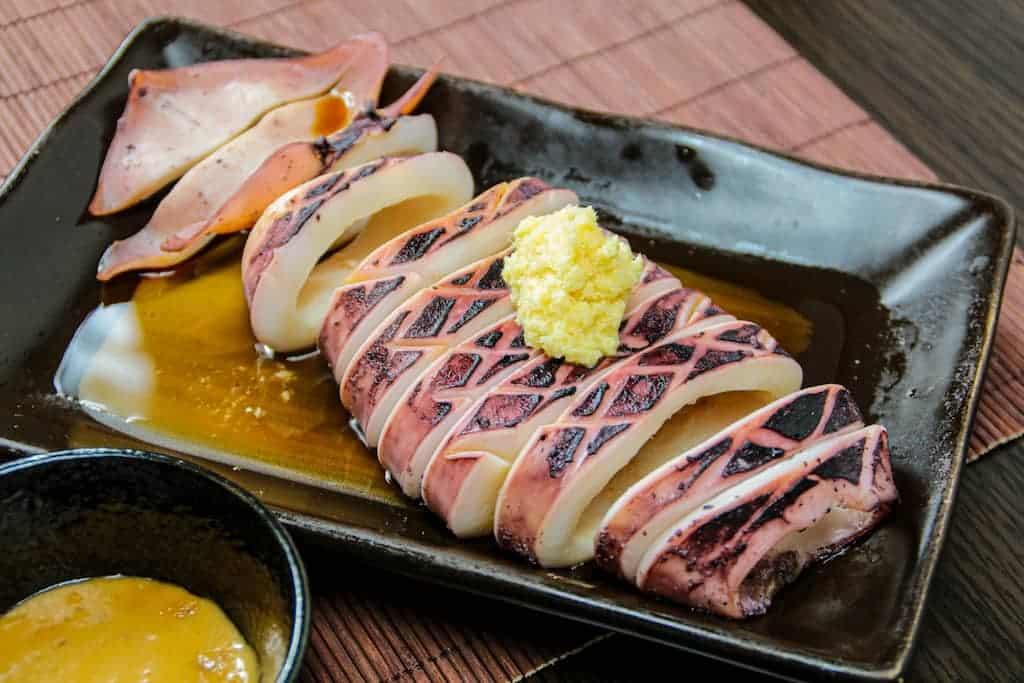
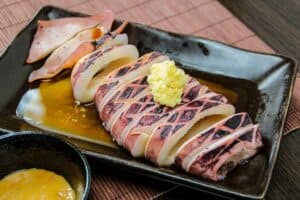
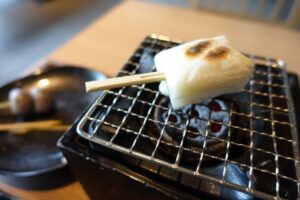
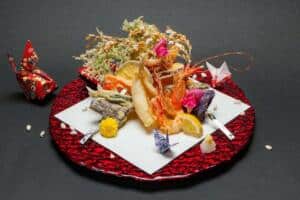

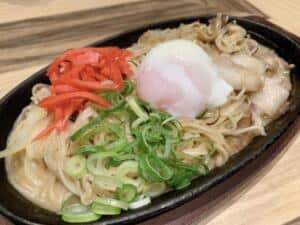

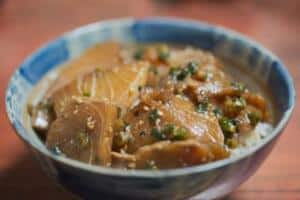

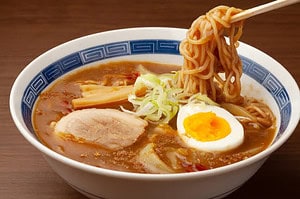
Comments